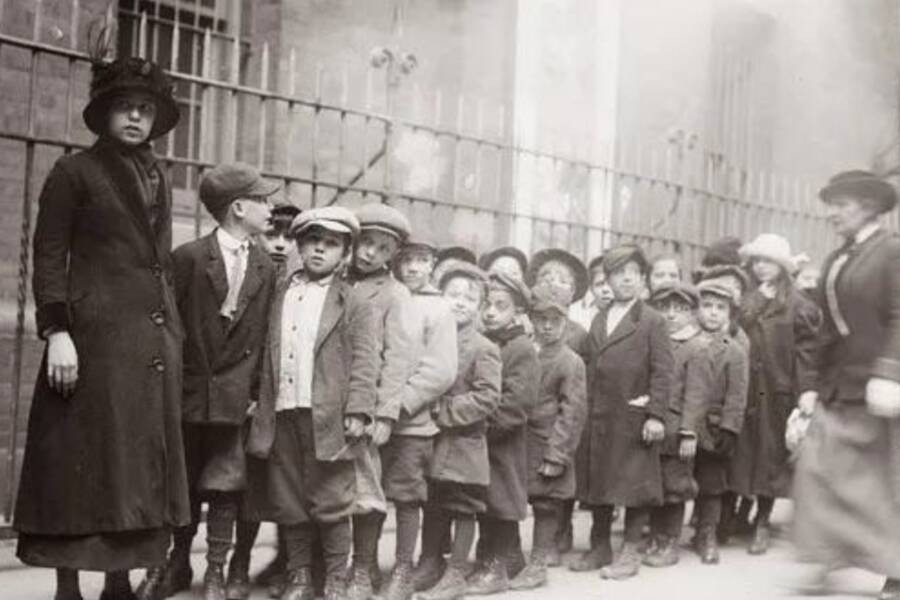The Monster Study (1939)

RedditA group of orphans who participated in the Monster Study, wherein they were either praised or scolded for their speech.
In the 1930s, it was widely accepted that stuttering was a purely physiological condition, possibly rooted in some misdirected brain signals. As a result, many people assumed that if you had a stutter, it was something you had been born with and would have to live with forever.
Wendell Johnson, a psychologist and speech pathologist at the University of Iowa, strongly disagreed with this assessment.
Per The New York Times, Johnson’s own story defied this theory. He said that he had spoken perfectly fine until he was five or six years old, and then a teacher mentioned to his parents that he was starting to stutter.
Suddenly, it was all he could think about, and the focus and worry, he argued, led him to inevitably develop a stutter. Johnson’s theory, then, was that a stutter “begins not in the child’s mouth but in the parent’s ear.”
To test this theory, Johnson instructed one of his clinical psychology graduate students, Mary Tudor, to choose 22 orphaned children as participants in a study (which is now known as the Monster Study), some of whom had a stutter and others who did not. She would then randomly divide the children into two groups: “normal speakers” and “stutterers.”
Regardless of whether the children in either group actually had a stutter, they were treated according to the group they were placed in.
Then, over the course of about five months in 1939, Tudor met with the children numerous times to evaluate their speech. Children in the “normal speakers” group — regardless of whether or not they had a stutter — were praised for their speech. Even the kids in that group who did stutter were encouraged and told that they would soon outgrow stuttering. Children in the “stutterers” group, on the other hand, were scolded and belittled.
Apparently, Johnson believed that the study would prove that a stutterer could be made — that comments about a non-stutterer’s speech could turn them into a stutterer. But that was soon shown not to be the case.
Unfortunately, some non-stuttering children in the study did develop accompanying tics of stuttering, such as self-consciousness about their speech or a tendency to withdraw from other people. And these tics stayed with many of the participants for decades after the study was over.
In 2003, Evan Douthit, a Kansas City attorney who represented some of the last surviving participants of the study in a lawsuit against the State of Iowa and the University of Iowa, said of their experience: “Even if these people’s speech wasn’t exactly ruined, their lives were. Kathryn Meacham has thought of herself as a freak all her life. She still hates to talk, except to her family and a few people in her church. She’s a sad, sad lady.”





